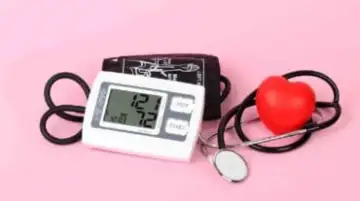
Kidney diseases are rampant among people of all age groups, and the number is only on the rise in India. Around 40 percent of kidney disease patients do not develop any symptoms and directly come with kidney failure.
The best way to reduce the risk of developing kidney disease is by keeping an eye on the risk factors and getting a proper diagnosis.
Since patients with kidney diseases do not exhibit signs and symptoms until the disease progresses and worsens, it is vital to get some tests done. Chronic kidney disease (CKD) is a disorder where the kidneys gradually deteriorate and lose their ability to properly filter blood. It frequently goes undiagnosed until serious renal damage has been done.
Early tests to diagnose kidney problems
Kidney diseases may not exhibit early signs and symptoms. The good news is that the disease can be detected and treated early. It may even help you to stop it from worsening and avert other health issues as well. Dr Puneet Bhuwania, Consultant Nephrologist, and Transplant Surgeon, Wockhardt Hospitals, Mira Road, Mumbai, shared a list of kidney tests with Health Shots that might help you know the status of your kidney health.
 These are the kidney disease tests you should get done to avoid getting kidney diseases. Image courtesy: FreepikThese are the tests to help you to know the status of your kidneys
These are the kidney disease tests you should get done to avoid getting kidney diseases. Image courtesy: FreepikThese are the tests to help you to know the status of your kidneys
1. Serum creatinine
Your muscles produce a waste product in your blood called creatinine. A person with healthy kidneys is able to remove it through urinating, however, a kidney patient might not be able to do that. Serum creatinine is a vital test that helps measure the creatinine levels in your blood.
2. Urine protein and urine protein quantification
This test helps detect excess protein in the urine. It helps find if there is protein or blood leak in the urine. Urine protein testing helps evaluate kidney health and your risk of developing kidney diseases.
3. Serum electrolytes
Serum electrolytes is a test that measures the level of the body’s electrolytes, including potassium. The kidney plays a major level in maintaining recommended potassium levels in your body. So, any abnormal levels can suggest kidney problems.
4. Blood pressure
It will be imperative for one to check blood pressure regularly. It is a known fact that uncontrolled blood pressure is one of the signs of kidney disease.
 What’s the link between blood pressure and kidney problems. Image courtesy: Adobe Stock5. Sonography
What’s the link between blood pressure and kidney problems. Image courtesy: Adobe Stock5. Sonography
Sonography or a kidney ultrasound is an imaging test that allows the doctor to look at your kidneys and bladder. It helps detect if there is any other issue or a disease such as a kidney stone or a kidney infection.
A word from the expert
While symptoms of kidney disease often go undiagnosed, there are some signs and symptoms of kidney disease you can look out for. Some common symptoms include nausea, vomiting, poor appetite, weakness, fatigue, frequent urination, swelling of feet and ankles, dry skin, muscle cramps and sleep issues. If you notice these symptoms, consult a doctor immediately to know if you suffer from kidney disease.
Prompt treatment might help you recover from the problem. However, if the kidney disease is at the end stage, you will need a kidney transplant to survive and improve your quality of life. Your doctor will determine the appropriate tests and treatment for you. So, do not neglect your kidney health at all.




 Driving Naari Programme launched in Chandigarh
Driving Naari Programme launched in Chandigarh






























